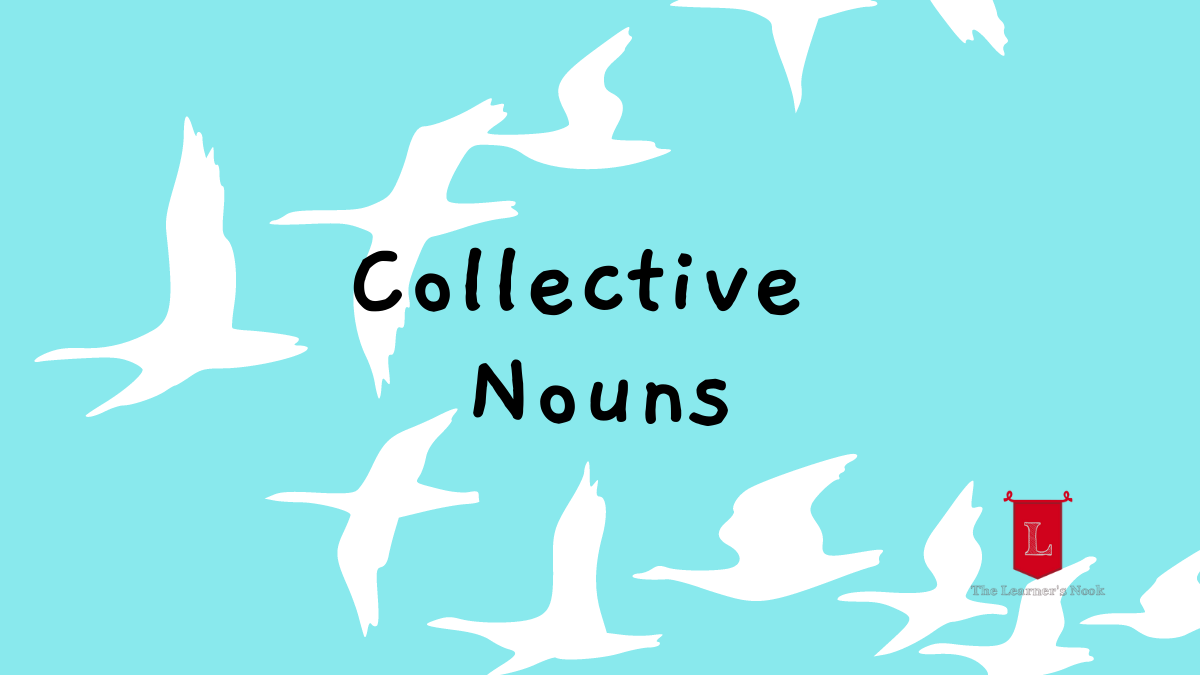Common Collective Nouns: Examples, Worksheets, and a Quiz
What is a Collective Noun?
A collective noun is a noun that stands for a group of individual people, things, or animals. So instead of saying “there are many dolphins,” you could say “there’s a pod of dolphins.”
Are Collective Nouns Singular or Plural?
Generally, most collective nouns are paired with singular verbs. Singular verb agreements sound more natural to native speakers and should be your default choice.
The class was reading. (singular)
The herd moves toward the river. (singular)
The exception to this rule is if members of that collective are doing different things. For example:
The students of the class choose different things to do. (plural)
The members of the team aren’t all here today. (plural)
In this case, we’ve added “students of” and “members of” because the sentence otherwise sounds incredibly odd. We wouldn’t say:
The class choose different things to do. (plural)
The team aren’t all here today. (plural)
The 15 Most Common Collective Nouns
There are tons of collective nouns out there, but only a few are used in everyday life. Here are fifteen that we think are good to know for the average English learner.
Crowd: Large group of people
The crowd (of fans) cheered loudly.
Group: smaller numbers of people together
Our group (of friends) couldn’t get into the restaurant.
Committee: People with a single purpose
The party committee isn’t doing a very good job.
Team: People working together in a competition
I can’t believe you never saw our school’s soccer team.
Class: Students
The class headed out for lunch five minutes ago.
Family: Related people
Our family went to Belize this summer.
Collection: Similar things
Did you know he has a collection of cars at home?
Swarm: Bees, Flies
A swarm of bees attacked after we got too close to their nest.
Pack: Wolves, Dogs, Group of the same things bought together
The pack (of wolves) hunted throughout the night.
He bought a pack of crackers for the train ride.
Flock: Birds, Sheep
The flock (of birds) danced in the wind.
School: Fish
I saw several schools of fish while I was snorkeling.
Cattle: Cows
The cattle calmly meandered along the road.
Pod: Dolphins, Whales
Can you see that pod of dolphins over there?
Herd: Elephants, Horses, Cows
If you’re lucky you might see a herd of elephants on the safari.
Litter: Baby pigs, baby dogs, and baby cats who are born together
A new litter of puppies was born just last night.
10 Collective Nouns for Animals
Almost all animal groups have their own special collective noun. The most important ones were highlighted above, but here are some more fun ones that you can impress your friends or classmates with.
If you don’t know what term to use, “a bunch of …” is always a good choice.
- Murder: Crows
- Parliament: Owls
- Army: Frogs
- Romp: Otters
- Flight: Doves
- Troop: Kangaroos
- Nest: Rabbits
- Gaggle: Geese
- Shrewdness: Apes
- Colony: Gulls
Collective Nouns Worksheet
Help your students practice collective nouns with these free worksheets. We’ve made one specific to common collective nouns and another for animals.


Collective Nouns Quiz
Try out our multiple-choice quiz to see how well you understand collective nouns. Find the right answers at the bottom of the page.
- What is the collective noun for birds?
- Herd
- Flock
- Romp
- School
2. What is the collective noun for a large group of people, say at a concert?
- Crowd
- Group
- Herd
- Committee
3. What is the collective noun for a group of students?
- Committee
- Crowd
- Flight
- Class
4. What is the collective noun for a group of wolves?
- Pack
- Murder
- Litter
- School
5. What is the collective noun for a large group of fish?
- Parliament
- Flight
- School
- Pod
Learn More About Different Kinds of Nouns and Verbs
If you’re looking to improve your English even more, here are some English resources you’ll be interested in.
Answer Key
- B
- A
- D
- A
- C
